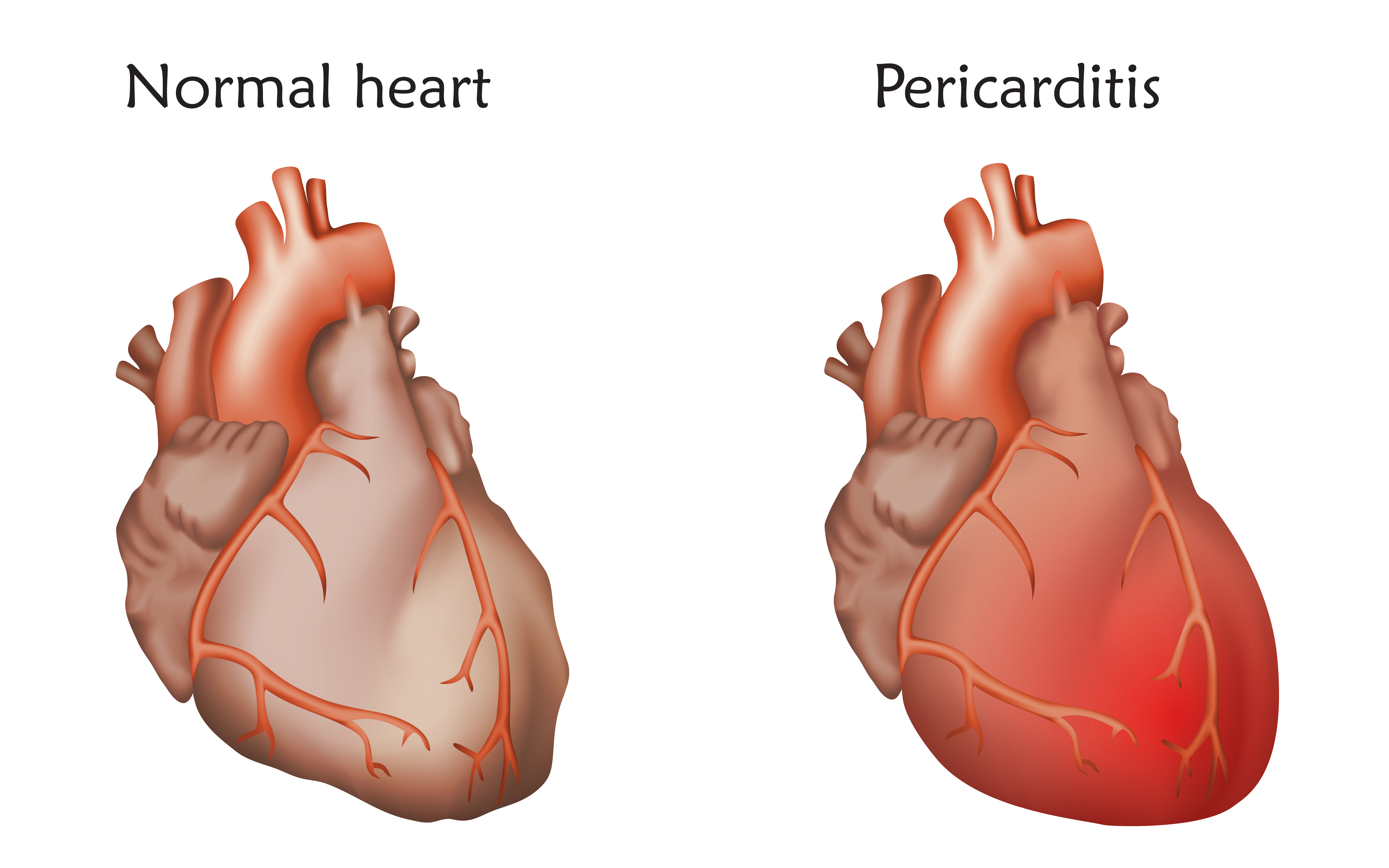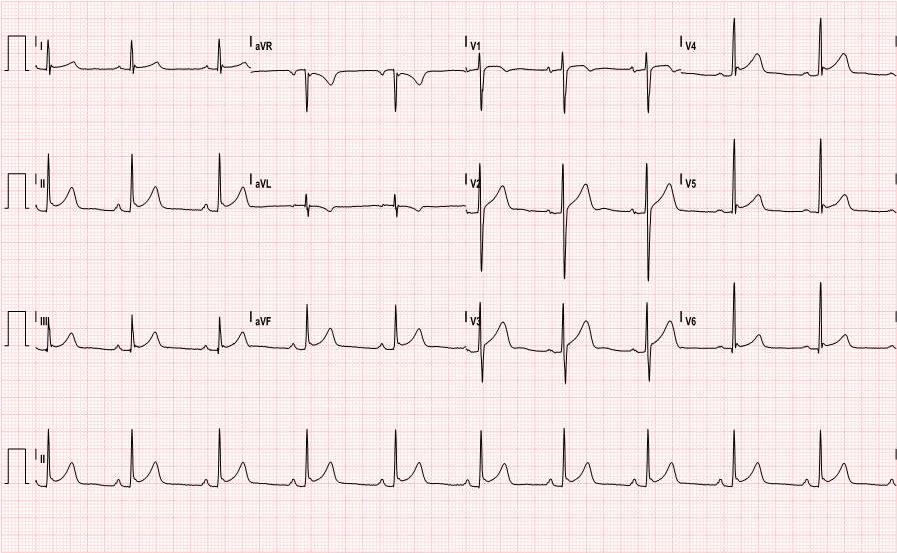Pericarditis Treatment: How to Get Rid of Pericarditis Fast – As pericarditis is a heart disease, its main cause can be bacterial pericardium infection or an autoimmune condition. There are different symptoms of this disease. These symptoms depend upon the stage of the disease and whether it is acute or chronic. Therefore, the most important thing is to detect the disease early and start the treatment as soon as possible.

Most people don’t realize that pericarditis is a real condition. It’s a type of inflammation of the pericardium, the sac around the heart. In some cases, pericarditis can cause symptoms such as shortness of breath, chest pain, fever, fatigue, and even heart failure. But there is good news! You can try several natural remedies for pericarditis treatment, including echinacea, cranberry, and fish oil.
Pericarditis is a painful and potentially dangerous condition. It’s caused by inflammation of the membrane that surrounds the heart. The rash usually affects one or both sides of the heart and can cause chest pain and other symptoms. But there are natural remedies you can try for pericarditis treatment, including echinacea, cranberry, and fish oil.
Pericarditis treatment
Pericarditis is a painful and potentially dangerous condition. It’s caused by inflammation of the membrane that surrounds the heart. The rash usually affects one or both sides of the heart and can cause chest pain and other symptoms.
Fortunately, you can try several natural remedies for pericarditis treatment, including echinacea, cranberry, and fish oil.
Echinacea is a popular herb that can help treat many different conditions. It has antibacterial and antiviral properties that can fight off bacteria and viruses, and echinacea extract has been shown to relieve symptoms associated with the common cold.
Cranberry juice is another powerful supplement you can take for pericarditis treatment. It contains several nutrients that can benefit your immune system and heart health and help reduce the risk of urinary tract infections.
Fish oil is also an excellent pericarditis treatment option. It has many health benefits, including lowering cholesterol levels and preventing clogged arteries.
Home remedies for pericarditis
Regarding pericarditis, home remedies are often the first line of defense. If you suspect that you’ve got a problem, you should see your doctor as soon as possible. But if you’re experiencing only minor symptoms, there are some natural remedies you can try first.
Echinacea is one of the best-known home remedies for pericarditis. It’s an herb widely regarded as a powerful immune system booster and can help you eliminate the symptoms of pericarditis.
Cranberry is another common home remedy for pericarditis. It’s a fruit that has been used for thousands of years. It contains a compound called proanthocyanidins, which can help to reduce inflammation.
Fish oil is also a popular home remedy for pericarditis. It’s a concentrated form of omega-3 fatty acids that can improve the functioning of the immune system.

Acute pericarditis
Acute pericarditis is a more serious form of pericarditis characterized by severe inflammation of the pericardium. It may require hospitalization, and sometimes it can lead to cardiac tamponade.
In many cases, pericarditis is triggered by viral infections, such as mononucleosis, Epstein-Barr virus, or influenza. However, it can also be caused by bacterial infections, such as Streptococcal pharyngitis. It is possible that pericarditis can recur because a disease often drives it.
Many patients who have pericarditis experience recurring episodes. In such cases, they should continue taking antibiotics until their symptoms resolve.

Frequently Asked Questions(FAQs)
Q: What does pericarditis mean?
A: Pericarditis is an inflammation of the membrane that surrounds the heart. It is caused by infection, injury, or disease.
Q: How is pericarditis treated?
A: Several treatment options include antibiotics, surgery, and corticosteroids. In most cases, doctors will recommend the least invasive treatment first.
Q: Can pericarditis lead to a heart attack?
A: If the inflammation doesn’t respond to treatment, it can affect the heart muscle and cause the pericardium to scar or thicken. In those cases, the condition can lead to a heart attack.
Q: Do you have to wear a bib while recovering from pericarditis?
A: You should wear a bib when you have fluid in your chest and feel nauseous or dizzy.
Q: Are there any side effects from using the treatment?
A: When taking the medication, I had some numbness on my tongue, but it’s gone now. Sometimes, my mouth can dry, and I have to drink a lot of water. But I think that’s normal.
Q: Do you recommend the medication for anyone else?
A: Yes. My doctors said that if I didn’t take the medicine, I could get very sick. It worked for me, and I think it would also help other people.
Q: Does it work better than other forms of treatment?
A: I have also tried alternative treatments, such as acupuncture, which isn’t effective for me. But this medicine has worked for me.
Myths About pericarditis Treatment
1. There is no cure for pericarditis.
2. Antibiotics are the best treatment for pericarditis.
3. Steroids should not be used for pericarditis treatment.
4. Cardiac inflammation cannot be treated with aspirin and anti-inflammatories.
5. Cardiac inflammation is due to infection or allergy and can be treated with antibiotics.
Conclusion
Pericarditis is inflammation of the pericardium, the sac-like structure around the heart. This condition is very rare, but it’s extremely painful when it occurs.
The first step in treating pericarditis is to determine whether it’s acute or chronic. Acute pericarditis is a viral infection usually treated with over-the-counter pain relievers. If you have chronic pericarditis, you may need to undergo surgery.
The next step in treating pericarditis is to figure out what caused it. In many cases, the cause of pericarditis is unclear. However, one common cause is autoimmune diseases, such as lupus. Another common cause is an infection, such as strep throat. If you suspect that you have lupus, talk to your doctor. In the case of acute pericarditis, the symptoms tend to go away after several weeks. The treatment for acute pericarditis involves medication.
